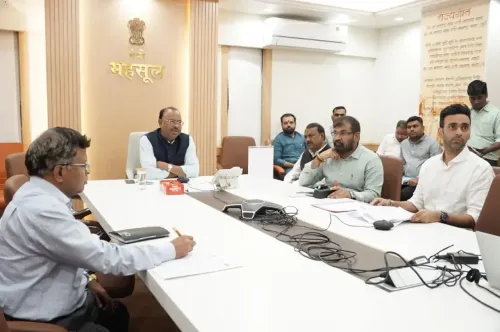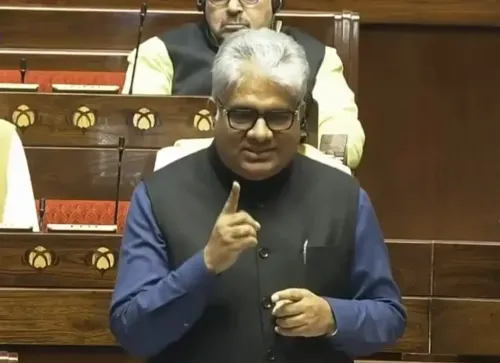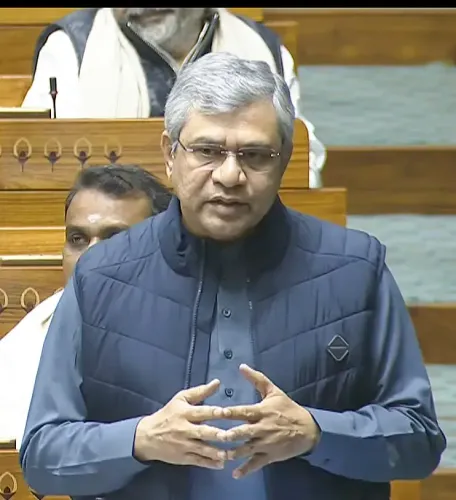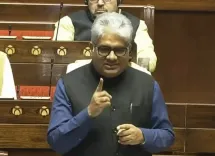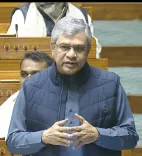How are Farmers in Bihar and Jharkhand Responding to the PM Dhan-Dhaanya Krishi Yojana?
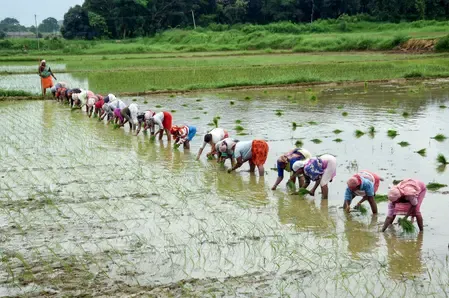
Synopsis
Key Takeaways
- Empowerment: The scheme aims to empower farmers by streamlining processes and reducing bureaucratic hurdles.
- Financial Support: With a significant annual budget, the initiative aims to provide substantial financial assistance.
- Holistic Approach: Integrating various existing schemes for a comprehensive improvement in agricultural practices.
- Community Development: Focus on rural development through better irrigation and infrastructure.
- Monitoring and Accountability: Regular assessments to ensure the effective implementation of the scheme.
Rohtas, July 17 (NationPress) Farmers throughout Bihar and Jharkhand expressed their enthusiasm on Thursday as they embraced the newly inaugurated Prime Minister Dhan-Dhaanya Krishi Yojana from the Centre. They are hopeful that this initiative will significantly change their lives and provide much-needed relief from persistent financial and infrastructural hurdles in agriculture.
With a staggering annual budget of Rs 24,000 crore, the program is designed to empower farmers and enhance agricultural growth in 100 identified districts across the nation.
In an interview with IANS, farmers from Bihar’s Rohtas district—a region recognized for its agricultural prominence—expressed their gratitude for the initiative, viewing it as a substantial advancement in bolstering rural India.
Ashutosh Singh, a farmer hailing from Rohtas, remarked, “This initiative feels like a double celebration for us. Rohtas is already a frontrunner in agriculture, and with the PM Dhan-Dhaanya Krishi Yojana, government support will amplify our capabilities. I am incredibly thankful to Prime Minister Modi for considering us farmers.”
Similarly, Krishna Kumar, another farmer, mentioned, “Previously, we had to navigate through numerous bureaucratic hurdles to access minimal benefits. Now, everything will be more efficient. We will no longer rely on others. This initiative will empower farmers to be self-sufficient.”
Santosh Kushwaha stressed the magnitude and framework of the initiative: “A yearly budget of Rs 24,000 crore is significant. More than just financial support, this scheme will integrate 36 existing programs across 11 departments, private collaborations, and state efforts. This comprehensive strategy will surely uplift farmers.”
Farmers in the neighboring state of Jharkhand shared similar feelings.
Kunal, a farmer from Ranchi, noted, “The scheme sanctioned by the Centre will provide direct benefits to us. For years, we have battled with inadequate infrastructure and limited access to credit. This marks a new beginning.”
Shankar Mahto, another Jharkhand farmer, added, “This initiative is more than just for farmers; it’s aimed at overall rural development. Improved irrigation, increased credit availability, and enhanced infrastructure will elevate entire communities.”
Robin, yet another farmer, expressed, “It’s a thoughtfully designed scheme. If executed effectively, it will bring genuine change in rural India. We remain optimistic for prompt implementation.”
On Wednesday, the Union Cabinet, under the leadership of Prime Minister Narendra Modi, sanctioned the 'Prime Minister Dhan-Dhaanya Krishi Yojana' for a six-year period starting in 2025-26, targeting 100 districts.
The initiative is inspired by the NITI Aayog's Aspirational District Programme, a groundbreaking effort concentrating solely on agriculture and related sectors.
The objectives include improving agricultural productivity, promoting crop diversification and sustainable practices, enhancing post-harvest storage at local levels, improving irrigation, and ensuring access to both long-term and short-term credit, as outlined in the official announcement.
This initiative was part of the budget proposals for the financial year 2025-26 aimed at developing 100 districts under the 'Prime Minister Dhan-Dhaanya Krishi Yojana'. The implementation will involve the convergence of 36 existing schemes across 11 departments, other state programs, and local private sector partnerships.
Each of the 100 districts will be selected based on three critical criteria: low productivity, low cropping intensity, and insufficient credit disbursement. The distribution of districts among states/UTs will align with the proportion of Net Cropped Area and operational holdings, with at least one district from each state being chosen, according to official sources.
Committees will be established at the District, State, and National levels for the effective planning, execution, and oversight of the initiative. A District Agriculture and Allied Activities Plan will be developed by the District Dhan Dhaanya Samiti, which will also include progressive farmers as members.
The District Plans will align with national goals focused on crop diversification, water conservation, soil health, self-sufficiency in agriculture, and the expansion of natural and organic farming.
Progress within each Dhan-Dhaanya district will be assessed against 117 key Performance Indicators via a monthly dashboard.
NITI Aayog will also assess and guide the district plans. Additionally, Central Nodal Officers assigned to each district will regularly monitor the initiative, as stated in the announcement.
As outcomes improve in these 100 districts, the overall national average for key performance indicators is expected to increase.


